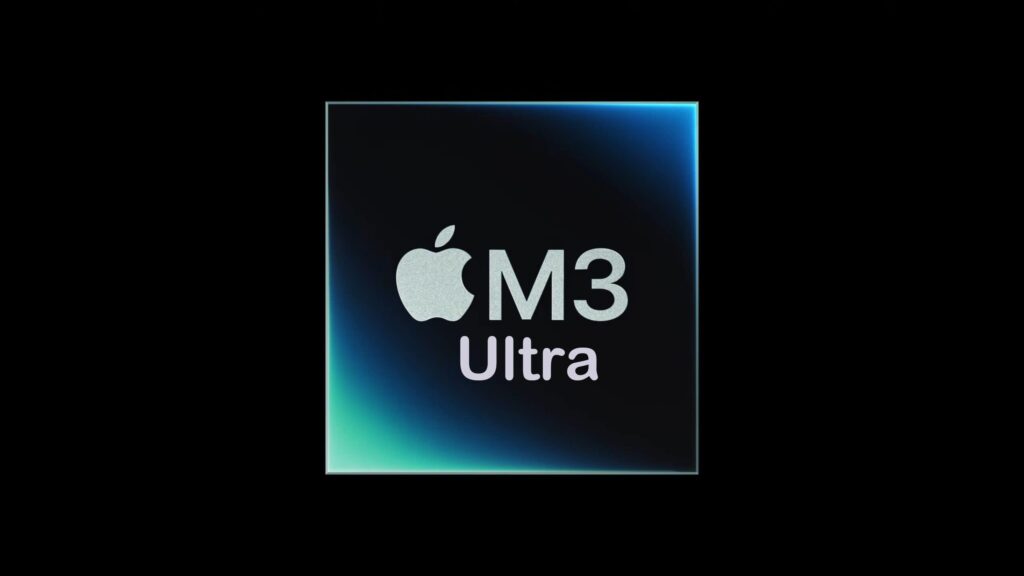 Backend Development
Backend Development PHP Tutorial
PHP Tutorial DZ Forum core code analysis-core file global.func.php_PHP tutorial
DZ Forum core code analysis-core file global.func.php_PHP tutorialPlease read the previous article: DZ Forum Core Code Analysis Plan - Install Package
It took two days to analyze global.func.php. I also planned to complete the common.inc.php file in three days, but found that many files were separated. So this time the post will change the strategy. Let’s first analyze the global.func.php file. . Poor analysis. I don't understand what a lot of things are for. . . We even found several functions that were not referenced in the entire DZ file system. Maybe it's a test function. But it's very useful. I took it and put it in my own function package.
Because this package has a lot of code. Carefully analyze each code block only for the personally important ones.
In the last article analysis plan, I actually missed two files. One is the DZ Forum global variable declaration table. DZ forum file role table. DZ Forum function call table.
Because there are relatively few things to analyze at the moment, I haven’t uploaded them here. Let’s wait until everything is done.
The study diary is as follows:
Only part of it is updated. . . . There is another part. . Will update in the afternoon
| The following is the quoted content: Golbal.func.php Diary time: October 7, 2008 10:37:34 1. This file is a frequently quoted file, so the beginning Still adopt the usual constant judgment method. Prevent it from being opened directly by malicious browsers 2. The encryption in the encryption function authcode has multiple md5 superimposed encryptions. Keep passwords secure. In common thinking, it is generally only encrypted once. And in DZ's encryption function. Encryption algorithms are complex. Encryption from md5, encryption with random character truncation, encryption with bit operations and encryption with key. 3. DZ’s character processing works very well. Although we will choose utf-8 or gbk when downloading. But whether you are dealing with characters or database links, character encoding is the first place to consider. The format is determined on the database link of the db_mysql.class.php file. The code is as follows $func = empty($pconnect) ? 'mysql_connect' : 'mysql_pconnect'; //Create a link to the attribute link of the class. And set the encoding method when establishing the link. if(!$this->link = @$func($dbhost, $dbuser, $dbpw, 1)) { $halt && $this->halt(' Can not connect to MySQL server'); } else { if($this->version() > '4.1') { global $charset , $dbcharset; $dbcharset = $dbcharset2 ? $dbcharset2 : $dbcharset; $dbcharset = !$dbcharset && in_array(strtolower($charset), array('gbk', ' big5', 'utf-8')) ? str_replace('-', '', $charset) : $dbcharset; $serverset = $dbcharset ? 'character_set_connection='.$dbcharset.', character_set_results ='.$dbcharset.', character_set_client=binary' : ''; $serverset .= $this->version() > '5.0.1' ? ((empty($serverset) ? '' : ',').'sql_mode=''') : ''; $serverset && mysql_query("SET $serverset", $this->link); } The string processing in the global.func.php file also takes into account the encoding format of the string. There is a global variable $charset which is used to set the encoding format. Cutstr processes strings based on the value of this variable. In addition, in the cutstr() function, special characters in the string will be processed before truncation. $string = str_replace(array('&', '"', ''), array('&', '"', ''), $string); After processing the truncation, restore it. $strcut = str_replace(array('&', '"', ''), array('&', '"', ''), $strcut); This can explain why the truncated text in the DZ forum still conforms to the original text format. 4. Customize the replacement of html code format. But here it should be noted that DZ is very thoughtful. if(is_array($string)) { foreach($string as $key => $val) { $string[$key] = dhtmlspecialchars( $val); //If it is a numeric value, traverse the array and then call its own function to process a single character. } How to determine if the incoming string is an array? kindness. My idea is to only encapsulate the replacement part of the character. But he encapsulated it very well here. Because I don't have to worry about what format of string I pass when calling this function. 5. Encapsulate the page jump in the dheader function 6. //Typical reduction of code repetitive input functions. Process the email string. Only emailconv (email address) is needed to return an encoded email address function emailconv($email, $tolink = 1) { $email = str_replace(array('@', '.'), array('@', '.'), $email); return $tolink ? ''. $email.'': $email; } 7. //Truncate the file name, enter the file name, and return the processed file name function fileext($filename ) { return trim(substr(strrchr($filename, '.'), 1, 10)); } 8. DZ is used to deal with the problem of direct input path access by the browser Judgment constant method. But what about robots? There are no constants for robots. But php has a custom constant: $_SERVER['HTTP_USER_AGENT']. These two are used to determine the name of the robot. It also contains names. So the robot’s judgment method is as follows: //By analyzing the common.inc.php file that calls this function. This function is used to determine how to handle the robot. function getrobot() { if(!defined('IS_ROBOT')) { //Define the search engine name $kw_spiders = 'Bot|Crawl |Spider|slurp|sohu-search|lycos|robozilla'; //Define browser type name $kw_browsers = 'MSIE|Netscape|Opera|Konqueror|Mozilla'; //Determine whether it is one of these browsers. If so, define the IS_ROBOT constant as false. Otherwise, determine whether the spider is the search engine defined above, and if so, define the IS_ROBOT constant to be true. If neither condition is met, define the IS_ROBOT constant as false. if(preg_match("/($kw_browsers)/i", $_SERVER['HTTP_USER_AGENT'])) { define('IS_ROBOT', FALSE); } elseif(preg_match("/($kw_spiders)/i", $_SERVER['HTTP_USER_AGENT'])) { define('IS_ROBOT', TRUE); } else { define('IS_ROBOT', FALSE); } } //Return the value of the IS_ROBOT constant return IS_ROBOT; } The call in the common.inc.php file is handled like this: //With this constant, robots are not allowed to access this page at will. define('IS_ROBOT', getrobot()); if(defined('NOROBOT') && IS_ROBOT) { exit(header("HTTP/1.1 403 Forbidden")); } Looks like it’s still the constant method. It's just that the value of this constant is obtained through the function getrobot(). |
Update Errors: These are errors I learned from my analysis of where they were called. But it’s impossible for me to find out and change it, so I’ll explain it here
The following is the quoted content: checklowerlimit(): This function is used to check the points limit
以下为引用的内容:
checklowerlimit():这个函数是用来检查积分限制的
Thank you to the following people for their help
以下为引用的内容: dongxin1390008说:daddslashes函数是检查php.ini文件的'MAGIC_QUOTES_GPC选项是否打开,若这个关闭,很容易的可以进行sql注射,若关闭了,则使用addslashes对单引号,# 号进行转义 2008-10-6 17:33:30更新附件包将此注释加入
The following is the quoted content: www.bkjia.comtruehttp: //www.bkjia.com/PHPjc/364108.htmlTechArticlePlease read the previous article: DZ Forum Core Code Analysis Plan--It took two days to install the package. Global.func.php analysis completed. I also planned to complete the common.inc.php file in three days, but found that it was separated again...
 如何在 Windows 11、10 中启用或禁用核心隔离内存完整性Apr 27, 2023 pm 10:43 PM
如何在 Windows 11、10 中启用或禁用核心隔离内存完整性Apr 27, 2023 pm 10:43 PM如今,大多数Windows用户都使用虚拟机。当他们系统上的核心隔离被禁用时,安全风险和攻击是可以预料的。即使设置了核心隔离,如果用户升级了系统,也会禁用内存完整性。如果启用核心隔离,系统将免受攻击。对于经常使用虚拟计算机的人,强烈建议他们启用它。如果您正在寻求有关如何在任何Windows11系统上启用或禁用核心隔离内存完整性的说明,此页面可以提供帮助。如何使用Windows安全应用在Windows11中启用或禁用核心隔离内存完整性第1步:按Windows键并键入Windows安全
 discuz论坛是什么Jul 10, 2023 am 11:03 AM
discuz论坛是什么Jul 10, 2023 am 11:03 AMdiscuz论坛是一种网络论坛软件,也称BBS,它是一种用于在互联网上建立论坛社区的程序系统。只哟中功能强大的论坛软件,可以帮助用户建立一个专业、完善的论坛社区,并且可以实现多种功能,如搭建用户注册、登录、查看主题、发布帖子、发表评论、设置版主等功能,让用户可以轻松地进行论坛社区的管理和维护。
 Discuz论坛权限管理:阅读权限设置指南Mar 10, 2024 pm 05:33 PM
Discuz论坛权限管理:阅读权限设置指南Mar 10, 2024 pm 05:33 PMDiscuz论坛权限管理:阅读权限设置指南在Discuz论坛管理中,权限设置是至关重要的一环。其中,阅读权限的设置尤为重要,它决定了不同用户在论坛中能够看到的内容范围。本文将详细介绍Discuz论坛的阅读权限设置,以及如何针对不同的需求进行灵活的配置。一、阅读权限基础概念在Discuz论坛中,阅读权限主要有以下几个概念需要了解:默认阅读权限:新用户注册后默认
 苹果M3 Ultra推出全新版本,新增32个CPU核心和80个GPU核心Nov 13, 2023 pm 11:13 PM
苹果M3 Ultra推出全新版本,新增32个CPU核心和80个GPU核心Nov 13, 2023 pm 11:13 PM这款芯片可能会搭载高达80个GPU核心,进而成为M3系列中性能最强大的产品。Max两倍核心数量从M1与M2系列的发展模式来看,苹果的「Ultra」版芯片基本上是「Max」版本的两倍核心数量,这是因为苹果实际上将两颗Max芯片透过内部连接技术结合起来,形成了M1Ultra与M2Ultra。80个GPU核心M3Ultra可能拥有「高达80个图形处理核心」。这一预测基于苹果芯片的发展路径:从基础版到「Pro」版,再到图形核心数量翻倍的「Max」版,以及CPU和GPU核心都翻倍的「Ultra」版。举例来
 php论坛有哪些Jul 25, 2023 am 11:12 AM
php论坛有哪些Jul 25, 2023 am 11:12 AMphp论坛有:1、PHP论坛,PHP官方网站的论坛板块,是PHP开发者之间交流的重要平台;2、phphub,国内知名的PHP技术社区,也是中国最大的PHP技术论坛之一;3、Laracasts,一个面向Laravel框架的在线学习平台;4、Reddit PHP,一个全球知名的社交新闻聚合网站;5、SitePoint,一个提供从网页设计到开发的综合性技术社区。
 前后端分离、社交论坛、问答、发帖/BBS项目,多端功能完整Jul 25, 2023 pm 05:39 PM
前后端分离、社交论坛、问答、发帖/BBS项目,多端功能完整Jul 25, 2023 pm 05:39 PM林风社交论坛小程序|H5论坛|app论坛是java+vue+uniapp开发的前后端分离社交论坛问答发帖/BBS项目,包括论坛图文帖,视频,圈子,IM私聊,微信支付,付费贴,积分签到,钱包充值等论坛小程序论坛app完整功能。
 Discuz 论坛热帖设置指南Mar 10, 2024 am 11:45 AM
Discuz 论坛热帖设置指南Mar 10, 2024 am 11:45 AMDiscuz论坛热帖设置指南随着网络的迅速发展,论坛作为一个重要的网络社区平台,扮演着连接用户、分享信息和交流观点的重要角色。在Discuz论坛中,热帖是吸引用户并提高论坛活跃度的重要方式之一。通过设置热帖,管理员可以将优质内容置顶展示,激发用户参与讨论,增加帖子的曝光度和点击率。本文将介绍如何在Discuz论坛中设置热帖功能,同时提供具体的代码示
 Golang的核心是否仅限于单核运行?Feb 29, 2024 pm 06:39 PM
Golang的核心是否仅限于单核运行?Feb 29, 2024 pm 06:39 PM《Golang的核心是否仅限于单核运行?》Golang作为一门现代化的编程语言,在并发处理和性能方面有着出色的表现。然而,有人对Golang的核心是否仅限于单核运行提出了质疑。在本文中,我们将探讨Golang的并发特性以及它在多核处理器上的表现,并通过具体的代码示例来解答这个问题。Golang在语言层面对并发处理进行了深入的设计和支持。它使用goroutin


Hot AI Tools

Undresser.AI Undress
AI-powered app for creating realistic nude photos

AI Clothes Remover
Online AI tool for removing clothes from photos.

Undress AI Tool
Undress images for free

Clothoff.io
AI clothes remover

AI Hentai Generator
Generate AI Hentai for free.

Hot Article

Hot Tools

SublimeText3 English version
Recommended: Win version, supports code prompts!

SAP NetWeaver Server Adapter for Eclipse
Integrate Eclipse with SAP NetWeaver application server.

WebStorm Mac version
Useful JavaScript development tools

SublimeText3 Linux new version
SublimeText3 Linux latest version

MinGW - Minimalist GNU for Windows
This project is in the process of being migrated to osdn.net/projects/mingw, you can continue to follow us there. MinGW: A native Windows port of the GNU Compiler Collection (GCC), freely distributable import libraries and header files for building native Windows applications; includes extensions to the MSVC runtime to support C99 functionality. All MinGW software can run on 64-bit Windows platforms.





